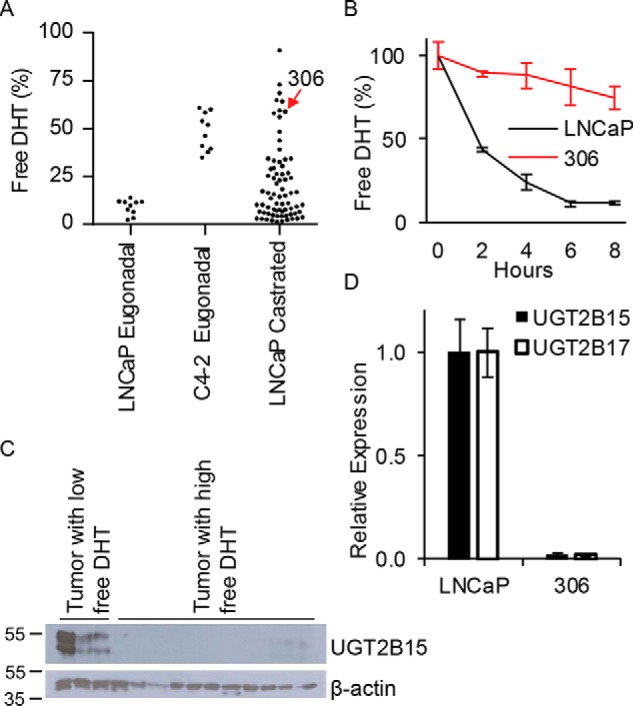Figure 2.

Prostate cancer growth in castrated mice selects for clones that lose expression of enzymes required for DHT glucuronidation. A, sustained LNCaP growth in castrated mice leads to development of subclones that sustain free DHT. LNCaP and C4-2 xenografts were grown in eugonadal mice. LNCaP xenografts were separately passaged in castrated mice over 14 months, 40 mg of xenograft tissue was incubated with [3H]DHT for 4 h and free DHT was assessed by HPLC. B, tumors acquiring the capability of sustaining free DHT lose UGT2B15 protein expression. Immunoblot was performed in proteins extracted from tumors that sustained low (left) or high (right) free DHT. C, a subcultured cell line derived from LNCaP grown in castrated mice gains the capability of sustaining free DHT. Experiments were repeated 3 times and error bars represent the standard deviation. D, a subcultured cell line gaining the ability to sustain free DHT does so by abolishing expression of UGT2B15 and UGT2B17. Expression was assessed by qRT-PCR in triplicate and normalized to RPLP0 and expression in LNCaP. Experiments were repeated 3 times.
